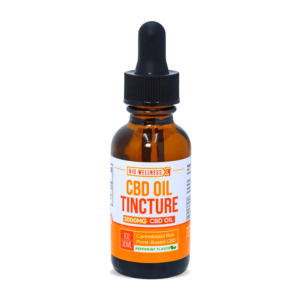Ever wondered why cannabis affects your digestion? The answer lies in a remarkable biological connection between the compounds in cannabis and the trillions of microorganisms living in your digestive system. The emerging field studying the cannabis gut biome relationship reveals that this connection extends far beyond what most people realize, influencing everything from inflammation to immune function in ways scientists are only beginning to understand.
The Foundation: Understanding Your Gut Microbiota
Let’s start with what’s actually happening inside your digestive system. Your gut microbiota consists of roughly 100 trillion microorganisms—bacteria, fungi, viruses, and more—forming a complex ecosystem that directly impacts nearly every aspect of human health.
These microbes do far more than help with digestion. They produce vitamins, break down complex carbohydrates into short chain fatty acids, train your immune system, and communicate constantly with your brain through what’s called the microbiota gut brain axis. This communication highway links your digestive tract with your central nervous system, influencing everything from mood to metabolic health.
When this ecosystem thrives in proper balance, gut health remains strong. But when disruption occurs—through poor diet, stress, antibiotics, or other factors—problems emerge. This imbalance can trigger conditions like inflammatory bowel disease, irritable bowel syndrome, and contribute to systemic inflammation throughout the body.
What makes gut bacteria particularly fascinating is their adaptability. The gut microbiome composition can shift within days based on dietary changes, stress levels, and yes—substances like cannabis that you introduce to your system. Understanding gut microbiota alterations is crucial because these shifts affect everything from maintaining gut barrier integrity to immune responses throughout your body.
The Endocannabinoid System: Your Body’s Internal Regulatory Network
Here’s where the story gets really intriguing. Your body produces its own cannabis-like compounds through the endocannabinoid system—a complex regulatory network you were born with. This system includes cannabinoid receptors scattered throughout your body, particularly concentrated in your brain and gastrointestinal tract.
These receptors come in two main types: CB1 and CB2. They act as part of a broader network of g protein coupled receptors that help regulate physiological processes including appetite, painful signal perception, inflammation, gut motility, and mood. In your enteric nervous system—essentially your gut’s “second brain”—these receptors help control digestion and intestinal homeostasis.
What’s particularly remarkable is that your gut microbiome actually influences this system. Bacterial metabolites produced when gut bacteria ferment dietary fiber can modulate receptor activity and affect cannabinoid receptor expression. This creates a sophisticated feedback loop between your digestive ecosystem and this regulatory network.
The system also plays a crucial role in gut barrier integrity—keeping your intestinal lining strong so harmful substances don’t leak into your bloodstream (commonly called leaky gut). This function becomes especially important when considering gastrointestinal disorders where this barrier becomes compromised.
How Cannabis Use Affects Your Digestive Ecosystem

So what happens when you introduce external cannabinoids? The effects of cannabis on your digestive ecosystem are surprisingly complex and individualized.
Research shows that cannabis exposure can significantly alter the bacterial landscape in your gut. Some studies examining chronic cannabis use have found increases in beneficial gut microbes like Faecalibacterium and Akkermansia muciniphila—species associated with reduced inflammation and improved metabolic function. These helpful organisms produce compounds that nourish your intestinal cells.
However, the relationship isn’t uniformly positive. Research comparing chronic users to non-users has revealed changes in microbial diversity that may not always benefit digestive wellness. The relationship between cannabis and your gut depends heavily on dosage, frequency, the specific type of medicinal cannabis products used, and your baseline bacterial composition.
Interestingly, your unique bacterial profile partly determines how you respond to medicinal cannabis. Some bacterial species can actually modify THC and CBD as these compounds pass through your gastrointestinal tract. This means your individual ecosystem influences therapeutic outcomes—another example of why personalized approaches matter.
Plant cannabis sativa contains numerous compounds beyond just the famous cannabinoids, including terpenes and flavonoids that may also interact with your digestive system. When consumed as edibles rather than smoked, these compounds pass directly through your digestive tract, potentially having more pronounced effects than inhaled cannabis.
Clinical Evidence: What Research Reveals
The therapeutic potential of medicinal cannabis for digestive conditions has attracted serious scientific attention. A systematic review of available research shows mixed but intriguing results across various conditions.
Studies examining inflammatory conditions have shown particularly interesting outcomes. Research suggests cannabis may help reduce inflammation markers through its anti inflammatory properties, working through receptor systems in the digestive tract to calm excessive immune activity.
For functional bowel disorders, evidence indicates potential benefits for managing physical discomfort and normalizing intestinal transit. Since these conditions often involve dysfunction in the gut brain axis, the modulatory effects on these systems make biological sense.
However—and this is critical—a clinical trial investigating these effects requires rigorous design. Many existing studies have been small or preliminary, and outcome measures vary significantly between investigations. We need larger, longer-term research with standardized cannabis extracts and consistent protocols.
The challenge is that medicinal cannabis products vary enormously in their cannabinoid ratios, terpene profiles, and delivery methods. This variability makes comparing results difficult and limits our ability to make specific recommendations. Further research needs to address this issue to provide clearer guidance about which formulations work best for specific conditions.
Preclinical and clinical studies continue exploring mechanisms, but treatment efficacy remains difficult to predict for individual patients. What works beautifully for one person might not work at all for another, highlighting the need for personalized approaches.
Beyond Digestion: Broader Health Implications
The connection between cannabis and digestive health extends to several other health domains worth understanding.
Medicinal cannabis has become established primarily for managing chemotherapy induced nausea. This application is well-supported by evidence and represents one of the clearest therapeutic uses. Beyond symptom management, preliminary research explores potential anti-cell growth effects, though this evidence remains early-stage.
Some radiation therapy often severely disrupts the bacterial ecosystem in your digestive tract, and some researchers theorize that the anti inflammatory effects of cannabinoids might help protect during treatment. The immune system’s relationship with both radiation treatment and digestive microbes adds complexity—your bacterial composition influences immune cells and potentially affects how well certain therapies work.
Emerging research also explores cannabis for mental health conditions including post traumatic stress disorder. Since the microbiota gut brain axis connects digestive health with brain function, effects on this system might partly explain psychiatric benefits. Some findings suggest potential cognitive effects, though concerns about cognitive impairment with heavy use remain valid.
Research using germ free mice and other animal studies has revealed that the presence or absence of gut bacteria dramatically affects how cannabinoids influence behavior and host physiology. These experiments highlight just how interconnected the endocannabinoid system and digestive microbes really are.
Metabolic and Inflammatory Considerations
The relationship between cannabis and metabolism deserves attention, particularly regarding inflammatory conditions and metabolic disorders.
Research on diet induced obesity has revealed interesting patterns. Some studies show that cannabis users have different metabolic profiles than non-users, with alterations in adipose tissue function and food intake patterns. The famous “munchies” effect increases appetite through receptor activation in brain regions controlling hunger.
Regarding weight loss, findings suggest complex relationships that don’t fit simple narratives. While cannabis increases appetite acutely, chronic cannabis users sometimes show lower body weight than non-users—a paradox researchers are still working to explain.
The production of chain fatty acids scfas by beneficial bacteria plays important roles in metabolic disease prevention. These compounds influence mitochondrial function in your cells and help regulate energy metabolism. Since cannabis affects which bacterial species dominate your ecosystem, it potentially influences production of these crucial metabolites.
The anti inflammatory effects extend beyond the digestive tract to affect systemic processes. By modulating immune activity and reducing inflammatory signaling, cannabinoids might influence metabolic disorders that have inflammatory components.
Recommended products
-
Feel Good Gummies – Full Spectrum CBD + L-Theanine
$24.97In stock
-
Pure CBD Oil Tincture
Price range: $29.99 through $169.99In stock
-
Tri-Delta Gummies – Ultimate THC Blend, 50mg per Gummy
$19.97In stock
Important Considerations and Limitations
Before drawing conclusions, several important caveats deserve mention.
First, much research has focused on medicinal and recreational purposes without clearly distinguishing between them. Therapeutic use for specific conditions likely produces different effects than recreational use in healthy individuals.
Second, most human research examines associations rather than causation. Just because chronic users show different bacterial profiles doesn’t necessarily mean cannabis caused those changes—other lifestyle factors might explain the differences.
Third, molecular mechanisms remain incompletely understood. We know cannabinoids interact with receptors throughout the body, but the downstream effects on bacterial species and long-term health outcomes need much more investigation.
Fourth, gut inflammation presents differently across conditions. What helps one inflammatory condition might not benefit another, and cannabis exposure might even worsen certain situations despite generally showing anti inflammatory properties.
Finally, maintaining gut barrier integrity involves numerous factors beyond cannabis. Diet, stress, sleep, and other lifestyle elements all play crucial roles that probably outweigh any single intervention.
Moving Forward: A Balanced Perspective
After examining the research, what can we reasonably conclude? The biological connection between cannabis and digestive health is real and multifaceted, working through receptor systems, bacterial populations, and inflammatory pathways. The science suggests cannabis holds genuine therapeutic potential for certain conditions, particularly those involving inflammation or transit issues.
However, effects vary dramatically between individuals based on their unique bacterial composition, genetic factors, and overall health status. What helps one person might not benefit another—or could even cause problems in some cases.
If you’re considering cannabis for digestive issues, working with knowledgeable healthcare providers is essential. They can help determine whether it’s appropriate for your situation, recommend specific products and dosing, and monitor your response over time.
Supporting your digestive ecosystem through diet remains crucial regardless of any other interventions. Focus on feeding beneficial bacteria with plenty of fiber-rich foods that promote production of supportive compounds. These dietary approaches have stronger evidence than most supplements or drugs for maintaining long-term digestive wellness.
The field continues evolving rapidly, with new research constantly refining our understanding. As we learn more about how cannabinoids influence bacterial ecosystems, inflammatory processes, and the gut-brain connection, our ability to use these compounds therapeutically will improve.
For now, approach this topic with both openness to possibilities and appropriate caution. The science is promising but incomplete, and individual responses vary too much for one-size-fits-all recommendations. Your digestive ecosystem deserves thoughtful, evidence-based care that considers your unique biology and circumstances.

Legal Disclaimer:
By reading this information presented, you agree to release the author of any liability that comes from using this data. This post contains no legal advice. Claims about cannabinoids have not yet been approved by the FDA. Read the full legal disclaimer here.
References
- Bonn-Miller, M. O., et al. (2021). JAMA Network Open.
- Blessing, E. M., et al. (2019). The Lancet Psychiatry.
- Mücke, M., et al. (2023). Cochrane Database of Systematic Reviews.
- Pertwee, R. G. (2008). British Journal of Pharmacology.
- Englund, A., et al. (2013). Neuropsychopharmacology.
- Laprairie, R. B., et al. (2015). Journal of Biological Chemistry.
- Gurley, B. J., et al. (2022). Journal of Dietary Supplements.
- Devinsky, O., et al. (2017). New England Journal of Medicine.
- Bergamaschi, M. M., et al. (2011). Neuropsychopharmacology.
- Hurd, Y. L., et al. (2019). American Journal of Psychiatry.
BONUS: 5 Science-Backed Ways to Support Your Gut Microbiome (With or Without Cannabis)
Whether you’re exploring cannabis as a therapeutic option or simply want to optimize your digestive health, these evidence-based strategies can help support a thriving gut ecosystem:
1. Feed Your Beneficial Bacteria Your gut microbes thrive on dietary fiber, particularly the types found in vegetables, fruits, legumes, and whole grains. These fibers get fermented into those crucial short-chain fatty acids we discussed earlier. Aim for 25-35 grams of fiber daily from diverse plant sources. The more variety in your diet, the more diverse your bacterial community becomes—and diversity generally equals resilience.
2. Include Fermented Foods Fermented foods like yogurt, kefir, sauerkraut, kimchi, and kombucha introduce live beneficial bacteria directly into your system. Even small amounts consumed regularly can influence your gut composition. Start with a tablespoon or two daily and gradually increase as your system adapts.
3. Manage Stress Intentionally Remember that gut-brain axis we talked about? Chronic stress travels down that highway and disrupts your digestive ecosystem. Regular stress management practices—whether meditation, exercise, time in nature, or activities you genuinely enjoy—aren’t just good for your mind. They’re essential for maintaining a healthy gut environment.
4. Prioritize Sleep Quality Your gut bacteria follow circadian rhythms just like you do. Poor sleep disrupts these rhythms and can alter your bacterial composition within days. Aim for 7-9 hours of consistent, quality sleep. Your gut microbes literally work the night shift, performing important maintenance and communication functions while you rest.
5. Minimize Unnecessary Antibiotics Antibiotics save lives, but they also indiscriminately wipe out both harmful and beneficial bacteria. If you need antibiotics for a legitimate infection, take them as prescribed—but don’t pressure your doctor for them when dealing with viral infections where they won’t help. When you do take antibiotics, consider probiotic supplementation afterward to help rebuild your bacterial community, and double down on fiber-rich foods.
The Bottom Line Your gut microbiome responds to your daily choices—what you eat, how you manage stress, whether you sleep well, and yes, substances like cannabis that you introduce. Small, consistent actions compound over time into significant changes in your digestive health. Start with one or two of these strategies and build from there. Your gut bacteria are remarkably adaptable and responsive to positive changes, often showing measurable improvements within just a few weeks of better habits.
FAQs About Cannabis
CBD modulates the ECS by blocking FAAH, boosting anandamide levels, and subtly altering CB1/CB2 activity—helping regulate physical discomfort, mood, and inflammation without causing a high.
Yes—CBD shows short-term anxiety reduction in studies, especially in social situations. Long-term data is limited, and effects vary depending on dose and individual response.
Epidiolex, an FDA-approved CBD drug, reduces seizures in rare epilepsy syndromes. Multiple clinical trials support its safety and effectiveness.
CBD shows promise for inflammation, but human studies remain inconsistent. Most research involves THC-CBD combinations, making it hard to isolate CBD’s individual impact.
Yes. CBD can cause fatigue, diarrhea, and liver enzyme changes. It may also affect how other medications are metabolized due to CYP450 enzyme interference.










